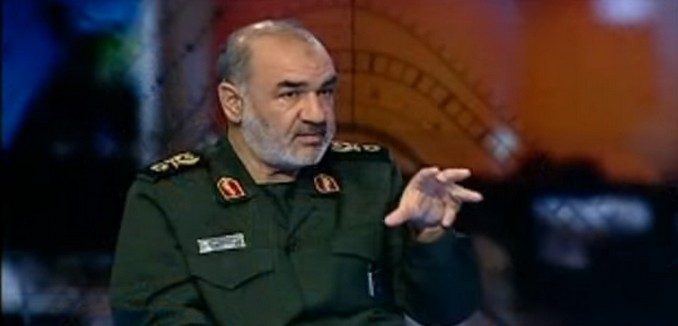The deputy commander of Iran’s Islamic Revolutionary Guards Corps (IRGC) admitted on state television that Iran has suffered growing losses as it has sent more “military advisers” to Syria, the Associated Press reported today. Agence France-Presse provided more details of the losses suffered by Iranian forces.
In Tehran, where war dead are revered and remembered in giant public murals, newly erected memorials are a sign of the human cost that Iran is paying in Syria, amid worries of what is to come. …
The past two weeks have seen the deaths there of one of Iran’s best known generals, Hossein Hamedani, two colonels and nine other members of the Islamic Revolutionary Guards Corps (IRGC).
Hamedani was believed to be Iran’s top general in Syria when he was killed October 9.
At least six Iranian generals have been killed in Syria this year, including three in October alone, according to an analysis by the McClatchy news service. Senior Iranian officers are needed in Syria to coordinate the varied forces backing Syrian dictator Bashar al-Assad.
The need for close battlefield supervision by senior commanders has grown as the pro-Assad force has become a diverse amalgam of fighters from Lebanon, Iraq and Iran as well as Syria, cobbled together to compensate for the Syrian army’s serious manpower shortages. In addition to coordinating with one another, the units must be synchronized with airstrikes from Russian and Syrian jet fighters and helicopter gunships.
“When you need as many bodies on the ground to do the fighting . . . they need better coordination,” said Philip Smyth, a University of Maryland researcher who tracks Iranian-backed Shiite militias. “You need guys who are hard core and can really provide the stiff style of leadership and command, people who are not going to flinch under fire.”
Last week, a commander in Iran’s Basij militia was killed in Syria’s Quneitra province, which borders Israel.
Ali Alfoneh, a senior fellow at the Foundation for Defense of Democracies, observed in a recent analysis that the growing number of IRGC deaths in Syria reflect a changing role for the force.
Al-Quds Force, the IRGC’s expeditionary arm, which is active in Syria, Iraq, Lebanon and elsewhere, is relatively small — about 15,000 men. In the wake of mounting al-Quds Force casualties in regional conflicts, the IRGC has had to deploy its regular Ground Forces to Syria to bolster al-Quds Force contingent.
This emerging deployment pattern in turn is rapidly changing the characteristics of the IRGC itself as it blurs the differences between the missions of the IRGC’s ground forces, whose primary task is to protect the Iranian homeland against external enemies and the regime against domestic opponents, and that of the Quds Force, which handles operations, invariably clandestine in nature, outside Iran.
This means that, in effect, the Syrian war is transforming the entire IRGC into an expeditionary force. This is likely to increase IRGC military interventions in the Middle East in the future and suggests that more Iranian forces could be deployed in Syria.
[Photo: Manuchehr lenziran / YouTube ]




